"A Louis XVI Portico Marble And Gilt-bronze Mantel Clock Circa 1780"
Louis XVI period portico-type pendulum in contrasting Carrara white and Turquin blue marbles enhanced with chiseled and gilded bronzes signed by Collard in Paris. The cylindrical-shaped dial is enamelled in white and marked with Arabic numerals. Which is surrounded by a finely chiseled and gilded frieze, overhanging an important lamp base composed of an apron of foliage and olive branches centered with a trophy borrowed from the commedia dell'arte such as fifes and tambourines as well as a mask and ribbons. The latter resting on two white marble columns hollowed out with rudent grooves with asparagus tips in chiseled and gilded bronzes. Each of the columns is backed by pilasters also of the same vein but decorated with parts and others of a pair of two baluster-shaped columns in gilded bronze. The whole is capped by two fire vases with flames in finely chiseled and gilded bronze surmounted in the middle part by a medicis vase with gilt bronze handles raised with foliage and topped with a button. The set rests on a recessed terrace in Turquin blue marble, enriched with friezes of plant windings centered with heads of Bacchus in gilded bronze. The whole rests on five small feet in finely chiseled and gilded bronze spinning top. Note a very slight jump at the left angle of the back of the pilaster. Dimensions Height 55.8cm - Width at the top feet 39.8cm and 39cm for the terrace - Depth 13.5cm from glass to glass bending, 11.4cm for the terrace and 12.5cm at the top feet. The "portico" or "portico" clock was invented in the Louis XVI period, as was an unrivaled variety of other models. The portico model will meet with immense success and will experience a wide variety of variations. It is still a real small architecture in reduction, including columns, consoles, urns, and ornamental repertoire borrowed from architecture. This architectural inspiration is governed by neoclassicism and "Greek taste" drawing its references from the discoveries of the archaeological sites of Herculaneum and Pompeii. This clock is perfectly representative of the portico clock as it was appreciated during the Louis XVI period. The marble columns, the bases, the stepped terrace, the ornamental repertoire, all borrow from architecture. The use of white Carrara marble and turquoise blue, urns, trophies and friezes refers to Antiquity, while the rich use of chiseled and gilded bronze with Ormoulu shows and recalls the precious character of the piece. Ballancer in the radiant sun and key are present. The name of master watchmaker Collard was crossed out at the end, a wrinkle of time. Former Victor Galinier collection. BIBLIOGRAPHY: • KJELLBERG Pierre, Encyclopedia of the French clock from the Middle Ages to the 20th century, Paris, Les Éditions de l'Amateur, 2005. • TARDY, Henri-Gustave LENGELLÉ alias, La Pendule française, 1ère partie, des origines au Louis XV, Paris, Tardy, 1974.
l. 15.67 inch X H. 21.97 inch X P. 5.31 inch
Delevery information :
General conditions of sale and delivery: The price indicated on the ad includes the delivery throughout the metropolitan France. For Germany, Belgium, Italy or Spain contact us for a quote. For the United States, Europe outside the EU or the rest of the world contact us for a quote but the import taxes applicable in each country remain at your expense. The packing and the follow-up of the transport are insured by ourselves or by professional carriers specialized in works of art.


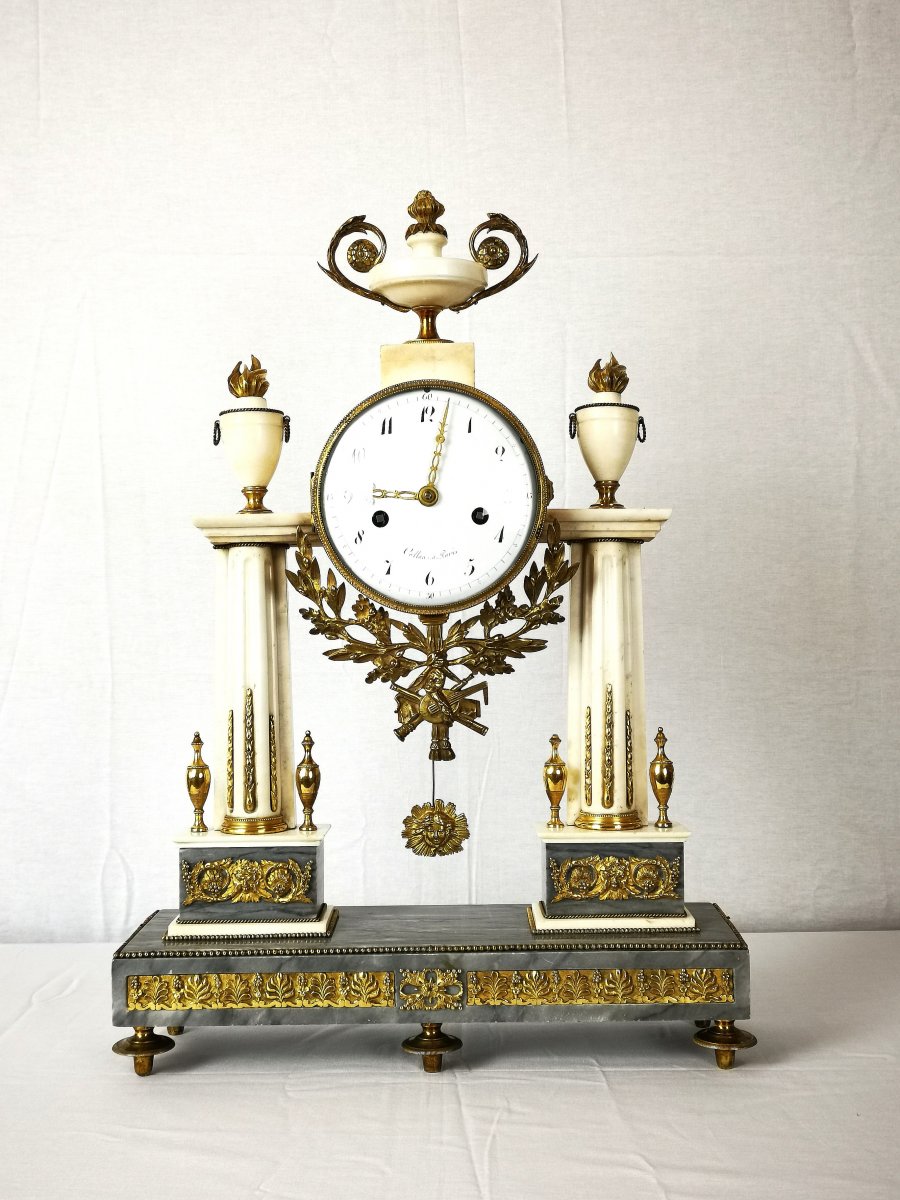
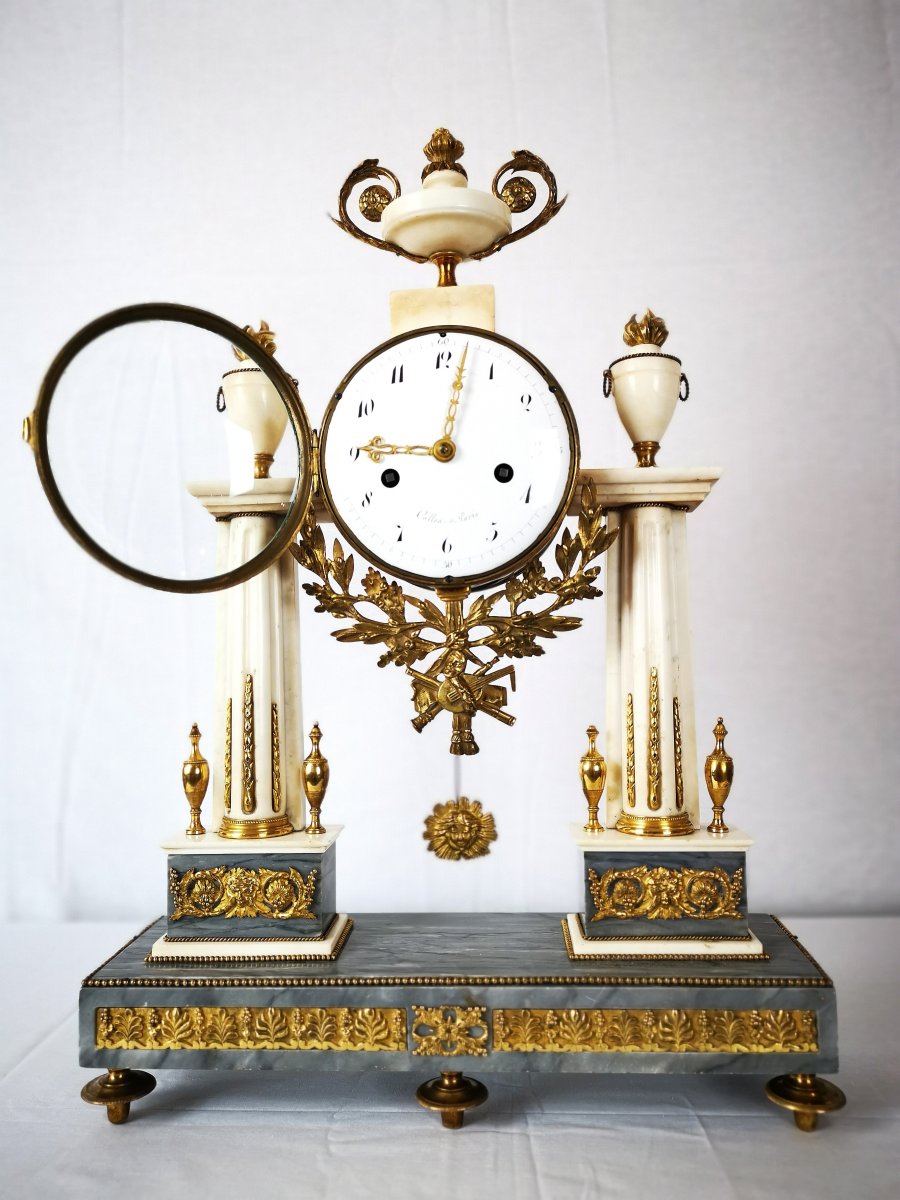
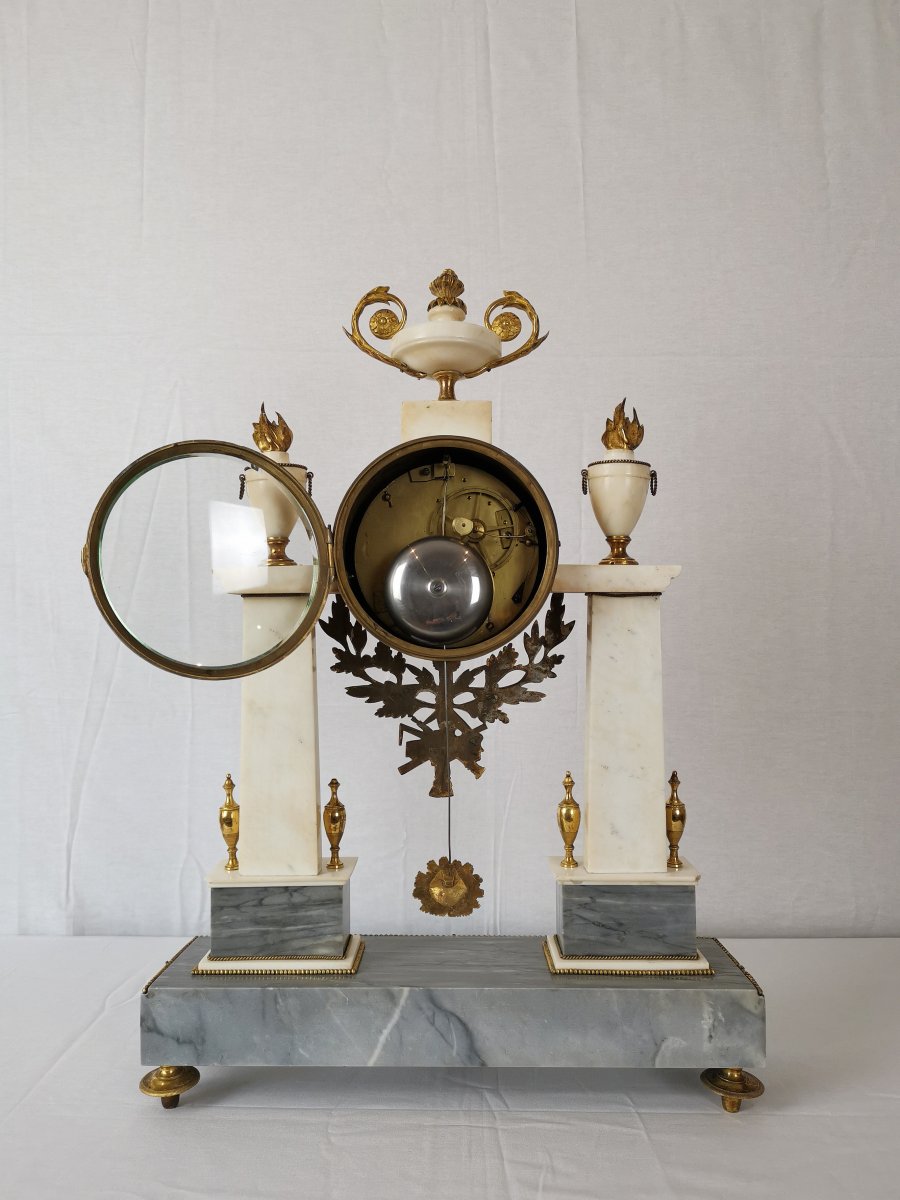
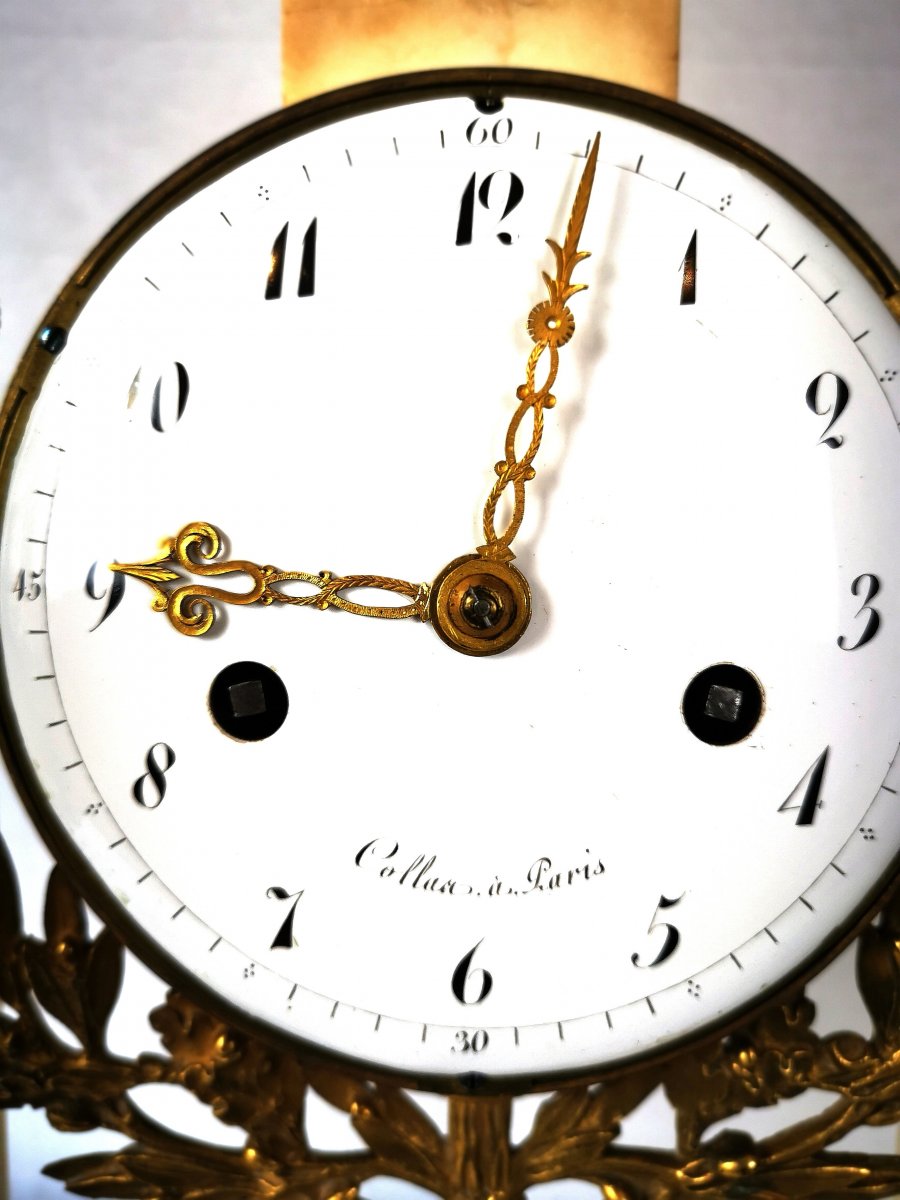
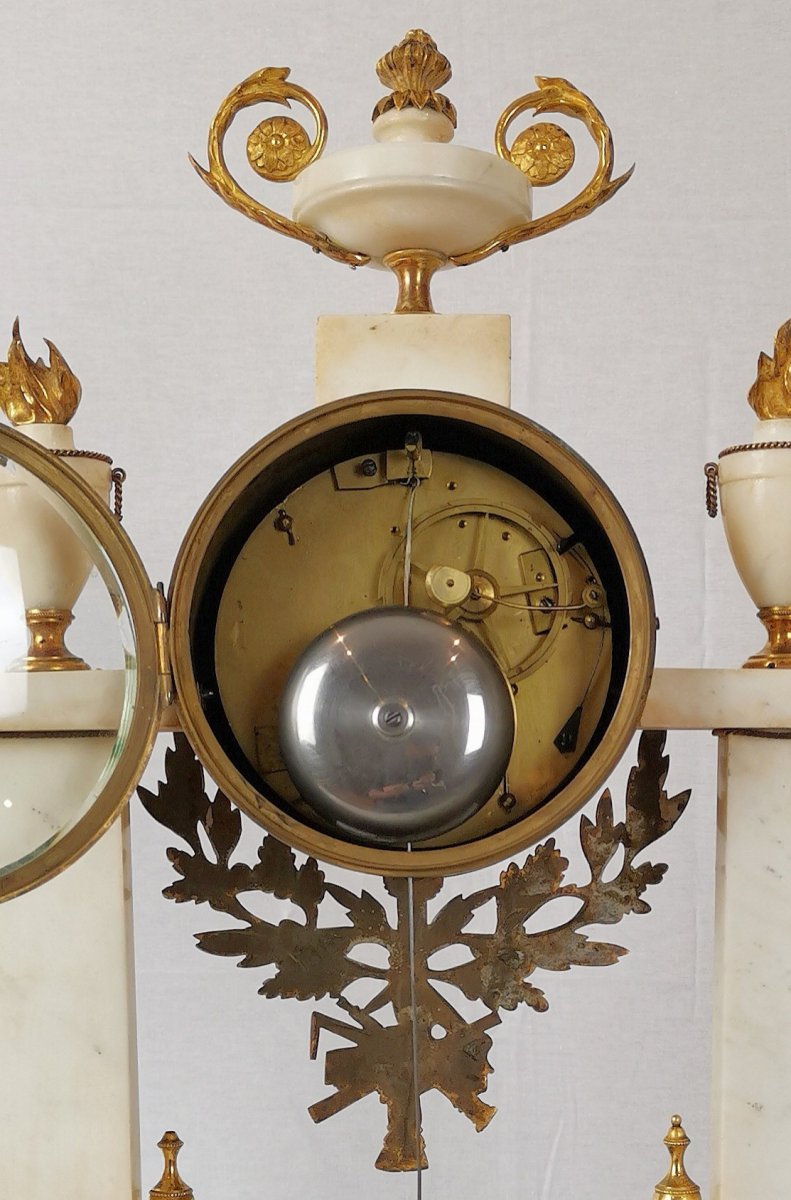
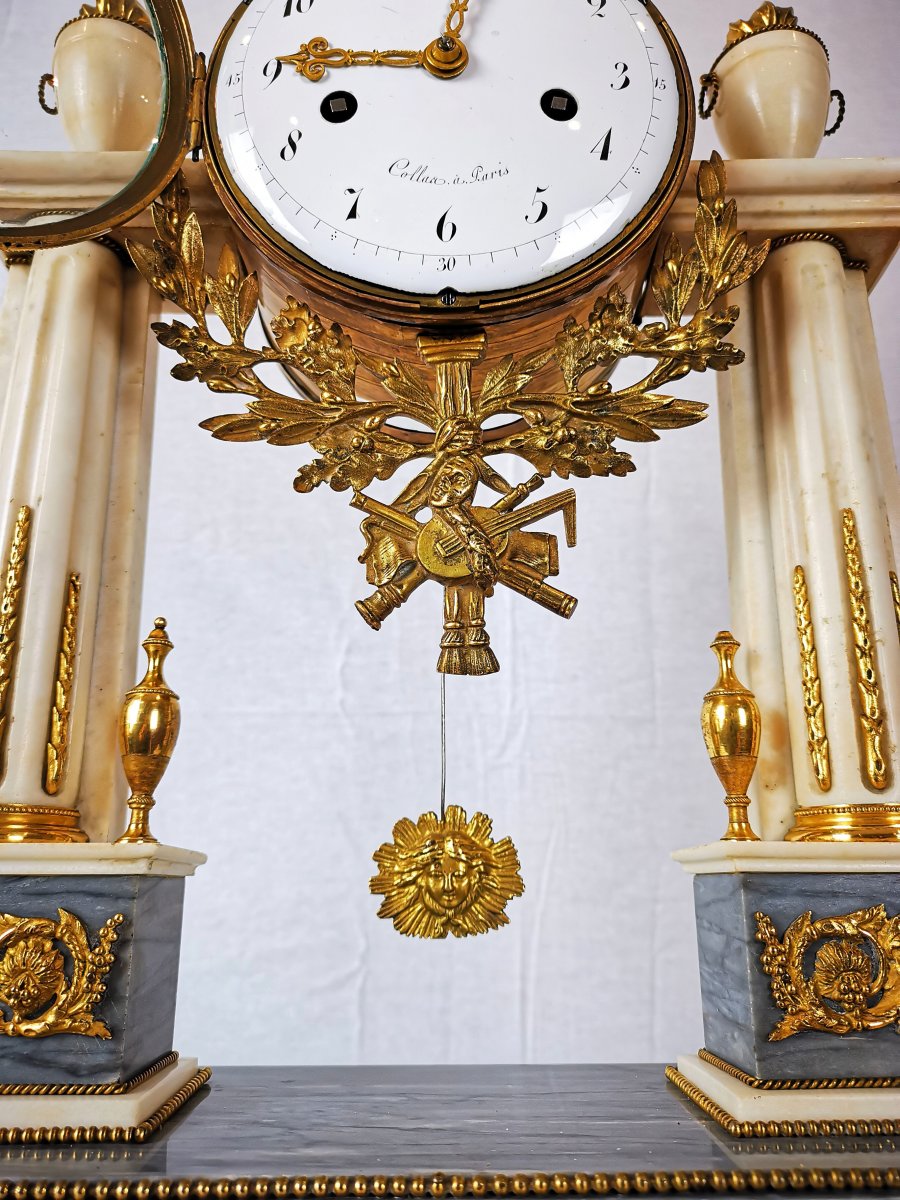

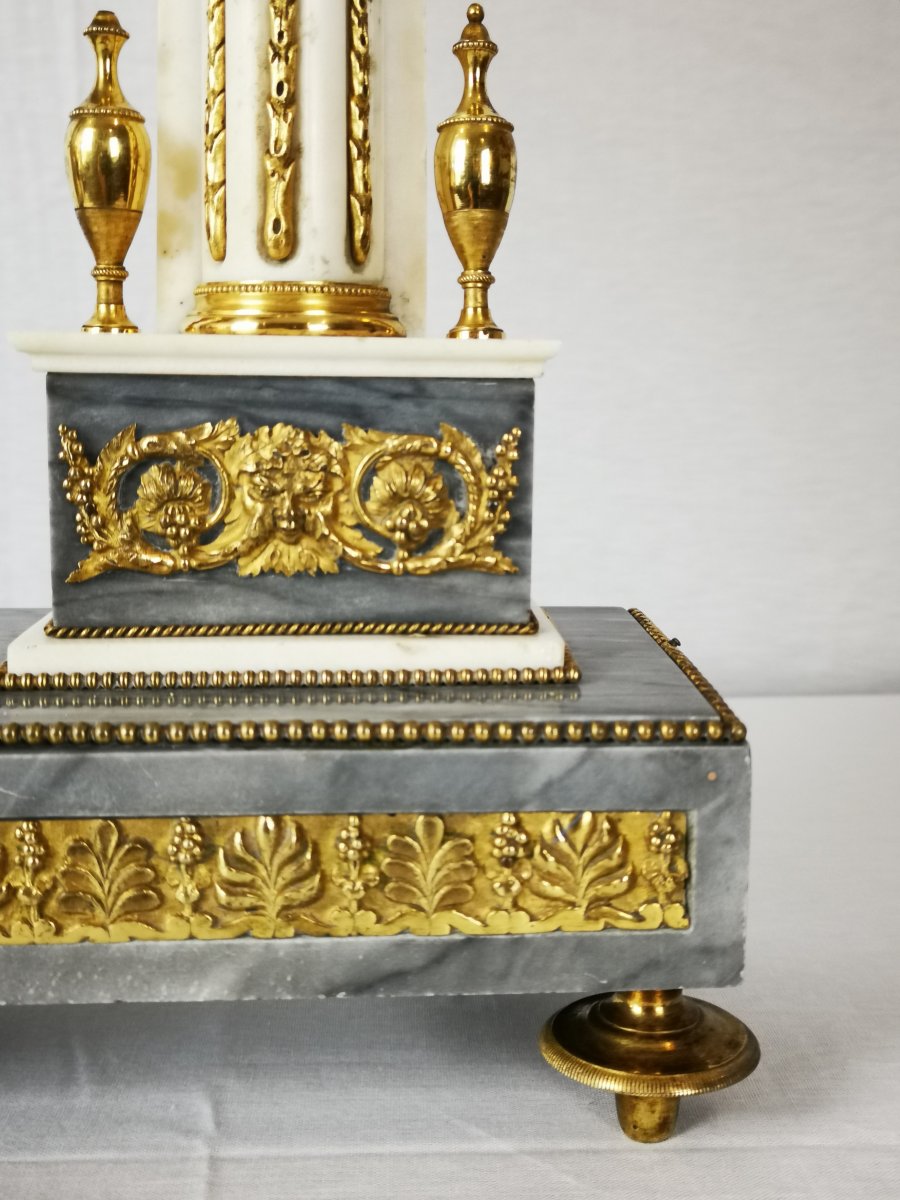
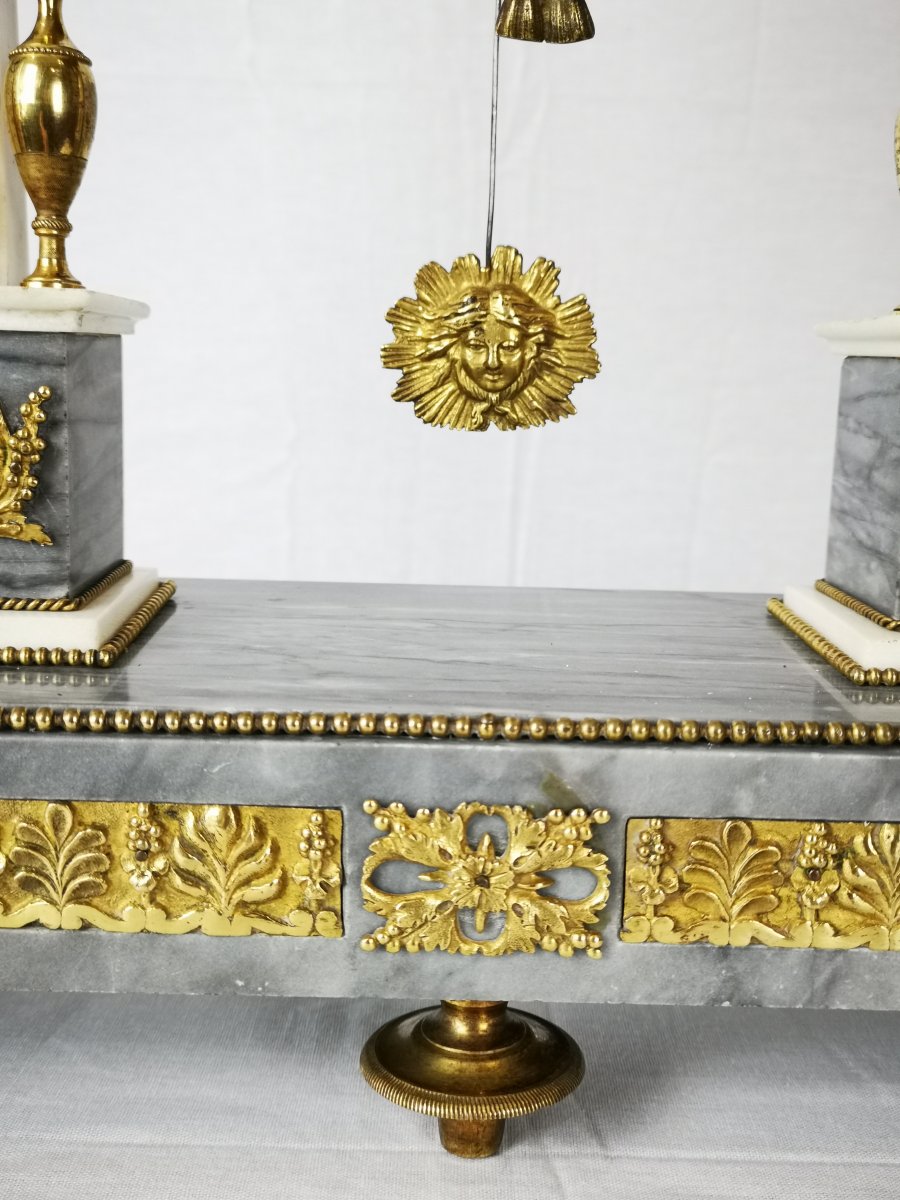
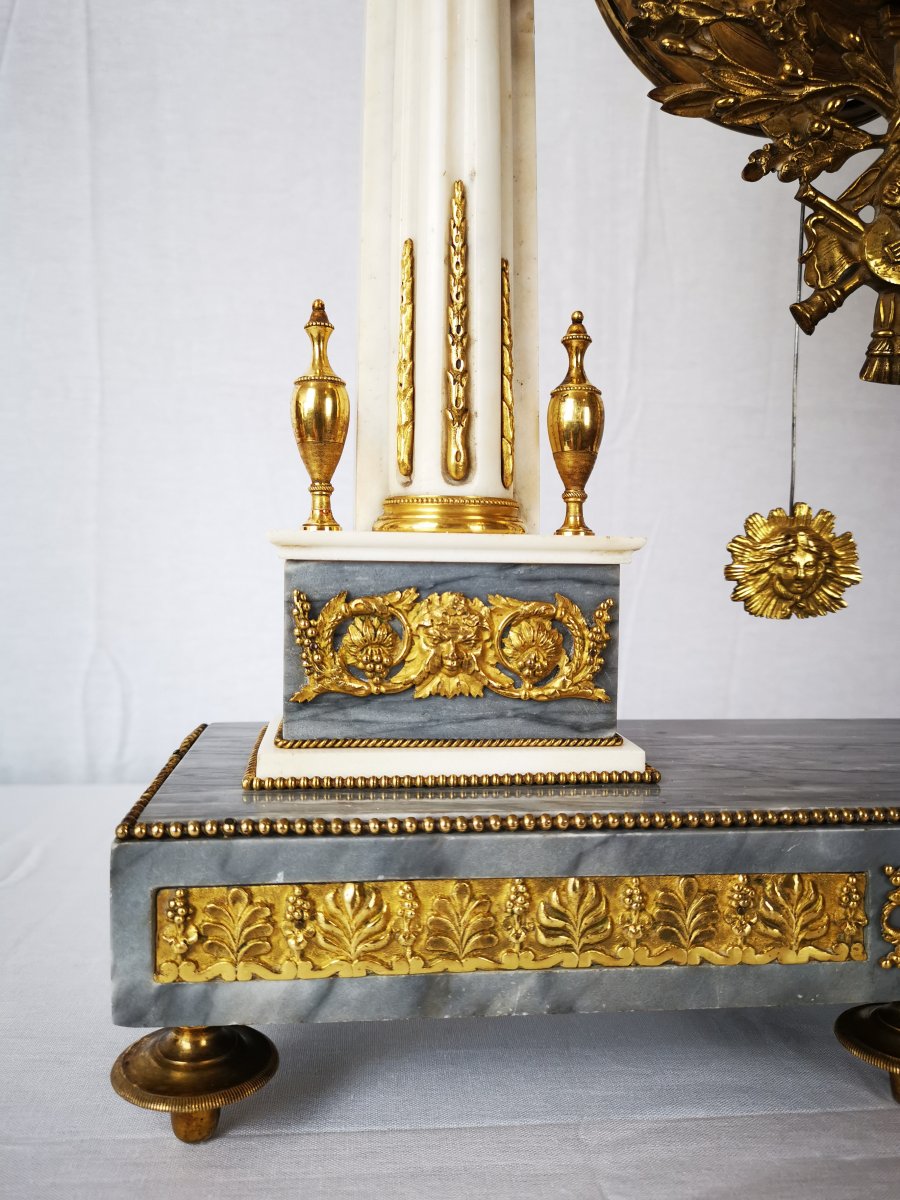
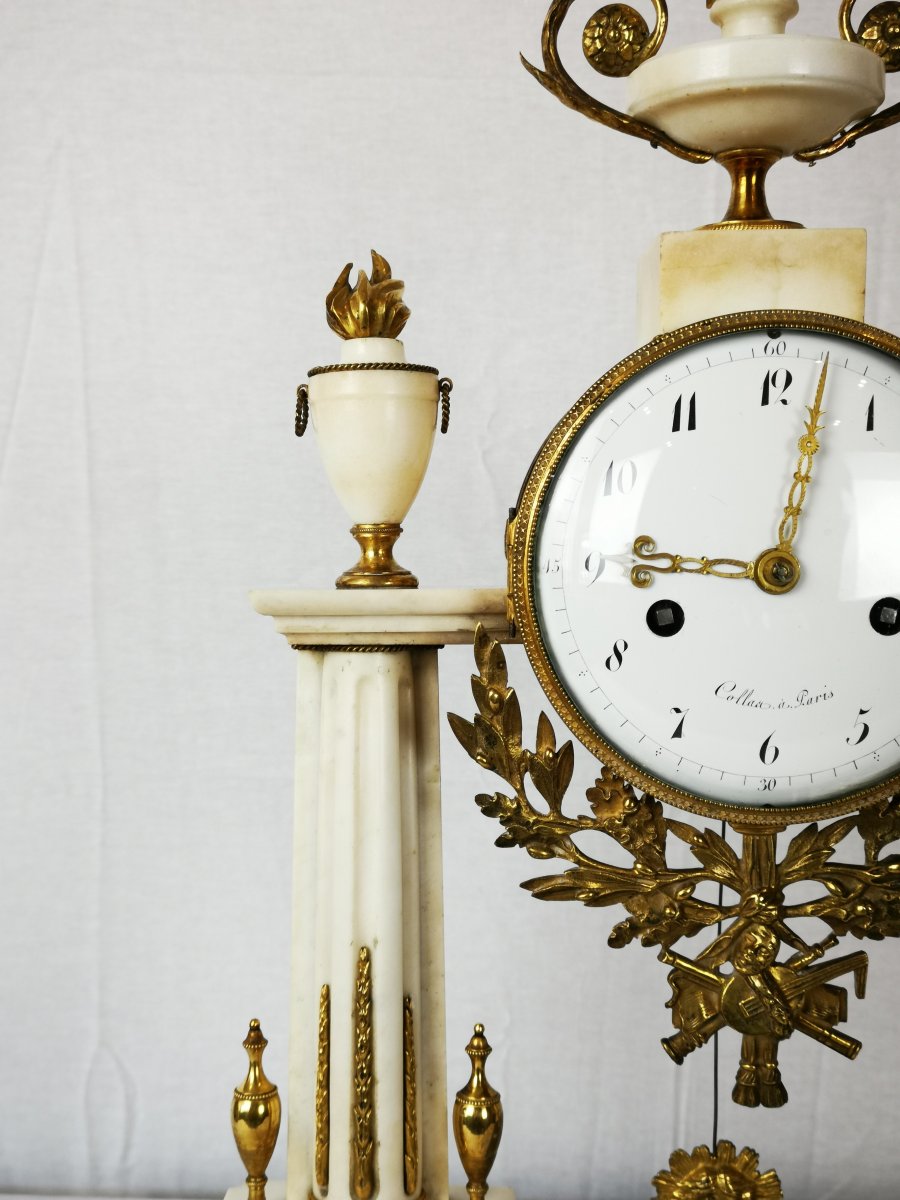
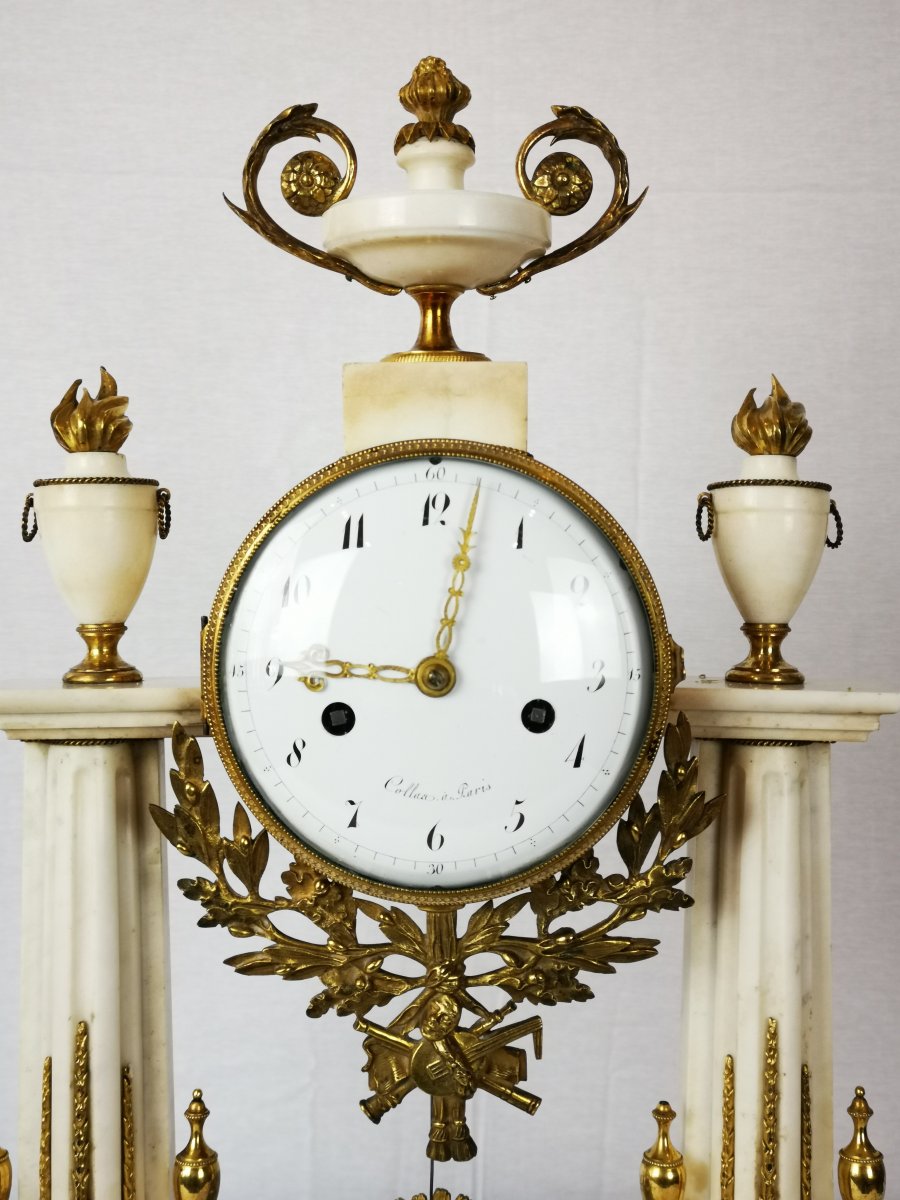






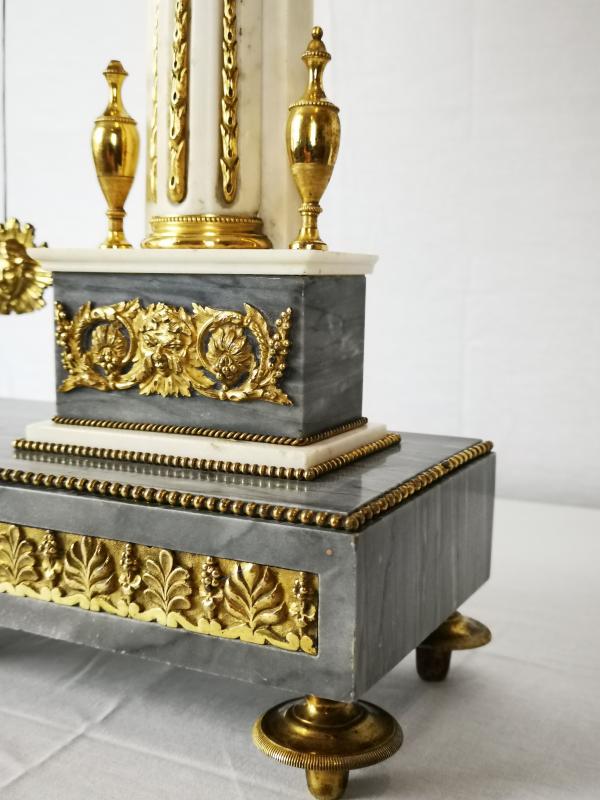







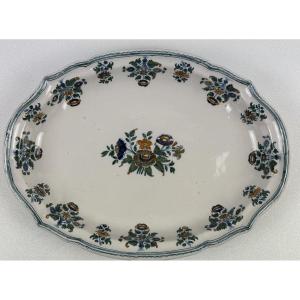















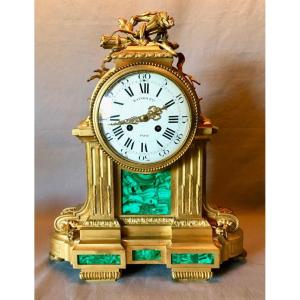


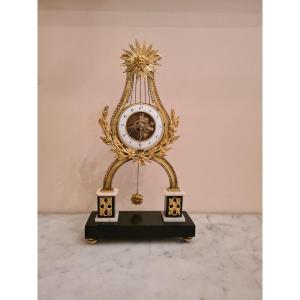



 Le Magazine de PROANTIC
Le Magazine de PROANTIC TRÉSORS Magazine
TRÉSORS Magazine Rivista Artiquariato
Rivista Artiquariato